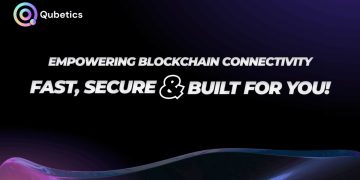What Is An Enterprise Blockchain?
An enterprise blockchain is a type of blockchain used by businesses that want to streamline their processes at scale while leveraging blockchain features, mostly for efficiency reasons. Enterprise blockchains are often used in the supply chain and settling global payments.
Due to the nature of existing public blockchains, most corporations believe enterprise blockchains are a better alternative. This is because data on these blockchains can be restricted from being accessed by the public, which meets the privacy demand of most corporations.
Characteristics of Enterprise Blockchains
Enterprise blockchains are designed as permissioned blockchains, which means companies have control over who can access data stored on these blockchains. For instance, a permissioned blockchain can block transactions if they do not meet the set rules or comply with law enforcement.
It is one of the main differences between public and enterprise blockchains. A public blockchain, like the one on which Bitcoin runs, is not controlled by any company, which means it is resistant to censorship. It is one of the reasons why Bitcoin and other crypto are so popular with the masses.
While enterprises do not like the permissionless nature of public blockchains, there are some characteristics that they like about them. One of these characteristics is accountability. Each node in the network, which holds a copy of the transaction history, is accountable for its actions. This is useful in a supply chain involving a handful of players, and keeping everyone on the same page is essential.
Another characteristic is their permissioned nature. It means that only users that have permission can access information on the blockchain. The network administrators can control who can access the blockchain and feed data into it.
Another essential characteristic is that enterprise blockchains are mutable. That means that if all nodes/users of the blockchain agree, a record of data can be altered. Finally, enterprise blockchains are extremely scalable. This is because enterprise blockchains do not face the limitation of public blockchains. It means they can support more transactions at their base and higher speeds.
Types of Enterprise Blockchains
Enterprise blockchains companies are divided into private and consortium blockchains.
Private Blockchain
A private blockchain refers to a centralized blockchain where one party determines the network’s rules. This party can change the practices at will. An excellent example is the JPM Coin blockchain, which JP Morgan owns.
Consortium Blockchain
Consortium blockchains are controlled by two or more parties who work together to define the rule of the network. Each entity within this group can contribute to the advancement of the blockchain. One good example of this is the Libra blockchain, which was a consortium of various parties.
While many companies are still exploring the potential that enterprise blockchains hold, many hurdles still need to be overcome. However, what is clear is that, in theory, enterprise blockchains offer huge advantages over all existing systems in the supply chain world, for instance. In the future, it is conceivable that once the technology progresses far enough, enterprise blockchains will become the default method for companies to transact with each other.
Top Blockchain Platforms for Enterprises
Ethereum
The most active blockchain in the world, Ethereum, is a top blockchain platform for enterprises. Enterprise Ethereum is a private consortium blockchain with the largest ecosystem and more than 2k DApps. Ethereum white paper.
Hyperledger
Hyperledger is an open-source modular blockchain used as a standard enterprise blockchain. It provides extra privacy and uses a unique approach to consensus for scaling. It supports various enterprise blockchain companies. Hyperledger white paper.
R3 Corda
R3 Corda is the first permissioned enterprise blockchain built from the ground up. It is an open-source blockchain and its smart contract technology enables businesses to transact directly. R3 Corda white paper.
Quorum
Quorum Blockchain is a completely managed ledger that allows enterprises to expand and operate blockchain networks. This open-source blockchain was founded by JP Morgan. Quorum white paper.
Microsoft
Microsoft also has a blockchain named Azure Confidential Layer which runs in a dedicated and completely tested enclave. Microsoft is planning to retire this Azure enterprise blockchain. Microsoft white paper.
Hedera Hashgraph
Hedera is a proof-of-stake (PoS) public network that works on hashgraph consensus algorithm to provide efficient, secure, and fast tokenization. It supports non-fungible tokens (NFT) as well. Hedera white paper.
XDC Network
The last on the list is XDC Network which is an enterprise-ready blockchain available since 2018. It is a hybrid blockchain enterprise for both public and private architecture. XDC Network white paper.






















